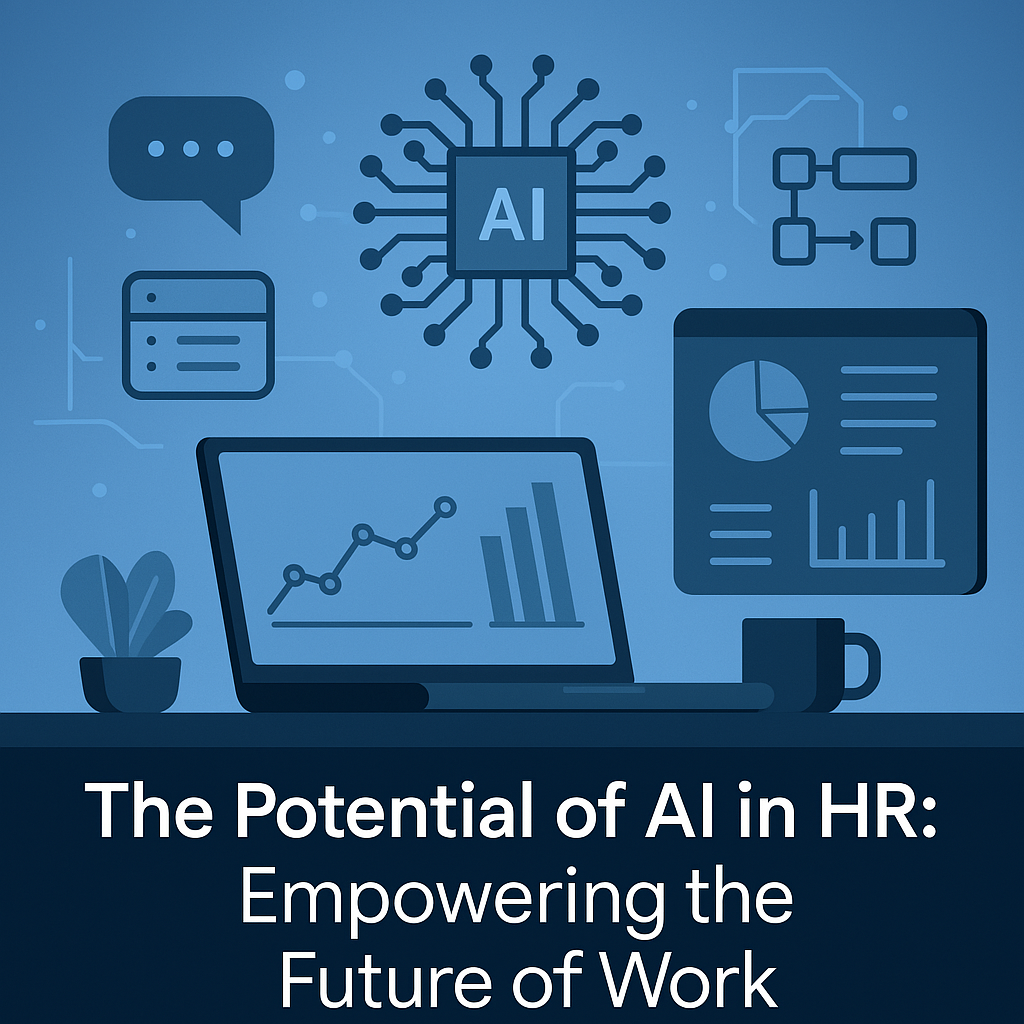
The Future of HR: How AI and Data Are Reshaping Human Resources
Share
The Potential of AI in HR: Transforming Human Resources with Data-Driven Insights
As businesses navigate the complexities of modern work environments, artificial intelligence (AI) is emerging as a game changer for Human Resources. From talent acquisition and employee engagement to performance management and predictive analytics, AI tools are reshaping HR processes. In this post, we explore how AI is transforming HR, present empirical evidence from research and industry reports, and discuss the implications for organizations of all sizes.
A New Frontier for HR: The Rise of AI
HR has traditionally relied on manual processes and intuition for decision-making. However, with the influx of big data and advancements in machine learning, companies are now harnessing AI to analyze vast amounts of HR data, streamline routine tasks, and provide strategic insights. This transformation is not only reducing administrative burdens but also enhancing data-driven decision-making throughout the employee lifecycle.
Empirical Evidence: AI’s Impact on HR Efficiency and Effectiveness
When it comes to recruitment and talent acquisition, research has shown that AI-powered tools are significantly enhancing the hiring process. For example, a study published in the Journal of Organizational Computing in 2019 found that applicant tracking systems powered by AI increased the efficiency of candidate screening by up to 35%, ultimately reducing time-to-hire and recruitment costs. Additionally, a Deloitte report from 2018 highlights how AI algorithms, when trained and monitored responsibly, can help mitigate unconscious bias in hiring. By evaluating candidate data objectively, these tools support more inclusive and diverse hiring practices, which in turn can lead to stronger team performance.
AI’s influence extends beyond hiring, playing a growing role in improving employee engagement and retention. A 2020 study from the IBM Smarter Workforce Institute revealed that organizations implementing AI-based predictive analytics saw a 20% drop in employee turnover. This was achieved by analyzing key performance indicators and engagement data to proactively address issues before they resulted in attrition. Similarly, AI is enabling HR teams to deliver more personalized employee experiences. Research published in the International Journal of Human Resource Management in 2021 showed that when organizations used data to generate personalized learning and development plans, employees reported significantly higher satisfaction scores.
The operational benefits of AI are also being felt through automation of routine HR processes. Tasks such as onboarding and documentation, traditionally time-consuming and error-prone, are being streamlined by AI platforms that can reduce manual data entry by up to 40%. This allows HR professionals to focus more on strategic initiatives while ensuring that new hires experience a seamless entry into the company. Furthermore, performance management is evolving through the implementation of AI-driven feedback systems. These systems provide real-time insights and personalized development recommendations, helping managers make informed decisions and fostering a culture of continuous improvement.
Case Studies and Industry References
Deloitte’s Global Human Capital Trends Report from 2018 offers compelling insights into how AI and other technologies are reshaping the HR landscape. It highlights clear gains in recruitment efficiency and bias reduction. IBM’s 2020 study reinforces the power of predictive analytics in reducing turnover and boosting retention through actionable insights. Additionally, the International Journal of Human Resource Management’s 2021 research supports the effectiveness of AI in tailoring HR strategies to individual employees, which has a direct positive impact on organizational productivity.
Implications for HR Professionals and Business Leaders
The evidence and case studies shared above paint a clear picture: AI is a transformative force in HR. However, to leverage its full potential, HR professionals must approach implementation thoughtfully. This includes adhering to strict data ethics and privacy standards as AI systems inherently process sensitive employee information. It’s equally important to ensure continuous monitoring and training of AI tools so they remain unbiased, accurate, and effective. Seamless integration with existing HR systems is also critical for unlocking the full efficiency and insight AI can provide.
Conclusion
AI is not just a futuristic concept—it is actively reshaping HR today by driving efficiency, reducing bias, and enhancing employee engagement through data-driven insights. Empirical evidence from both academic research and industry reports points to significant improvements in various HR functions, from recruitment and onboarding to employee retention. As businesses continue to embrace digital transformation, HR professionals and business leaders must harness the potential of AI responsibly to build more resilient, agile, and people-centric organizations.
References
Journal of Organizational Computing, 2019
Deloitte Global Human Capital Trends Report, 2018
IBM Smarter Workforce Institute Study, 2020
International Journal of Human Resource Management, 2021